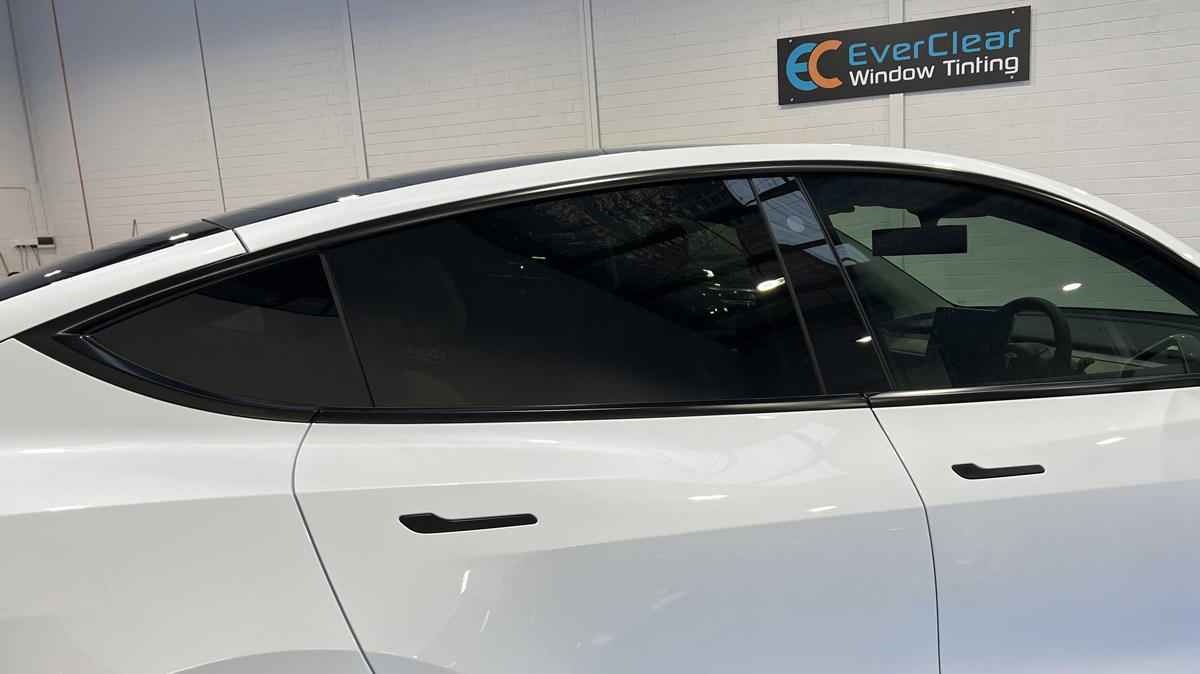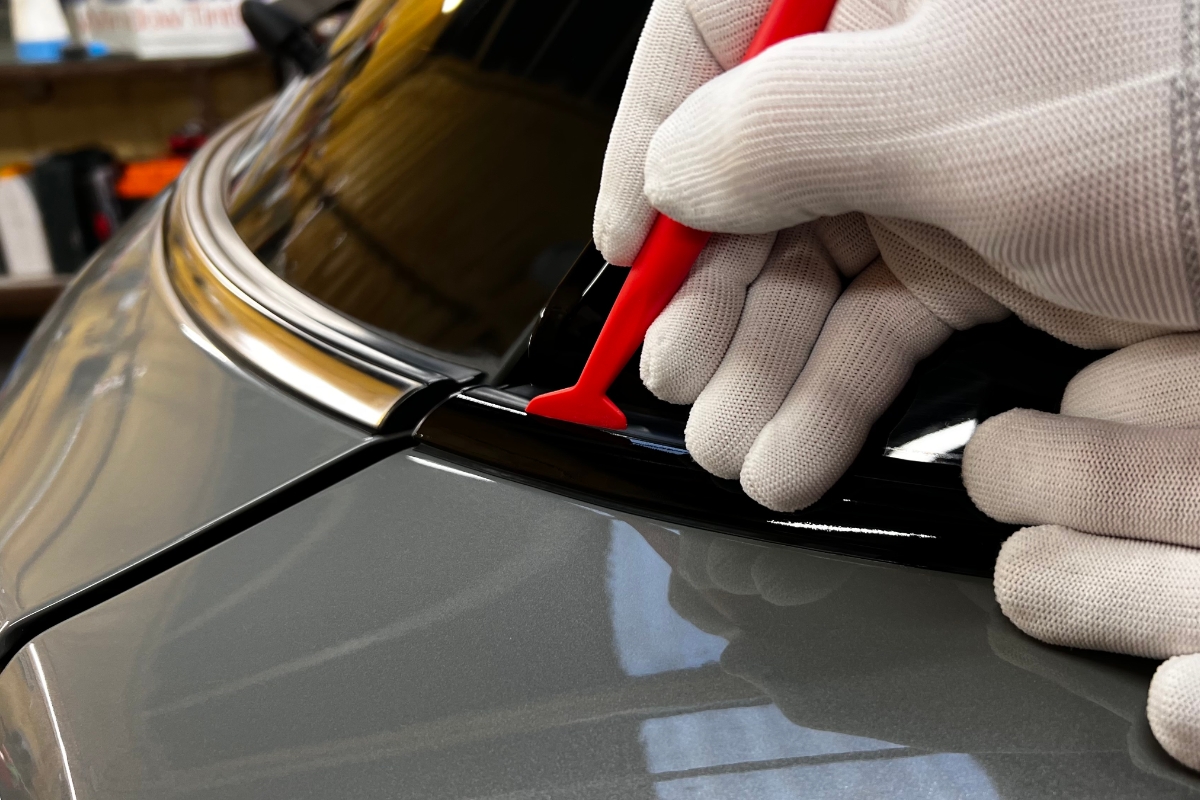Window Tinting Rules: What You Need to Know Prior To Tinting Your Vehicle
Understanding home window tinting regulations is essential for any type of lorry owner thinking about tinting their cars and truck. As you contemplate improving your lorry's appearance and performance, it is important to comprehend not only the legal implications but likewise the sensible considerations that come with selecting the appropriate color.
Importance of Recognizing Color Rules
Comprehending home window tinting regulations is important for lorry proprietors to make certain compliance with state policies. These laws determine the permissible levels of tint darkness and reflectivity, which can considerably vary from one jurisdiction to one more. Falling short to abide by these guidelines can result in fines, required elimination of the tint, and potential complications during car assessments.
Additionally, understanding these laws helps vehicle owners make informed decisions about their tinting options. Different sorts of home window movies give numerous advantages, such as UV protection, heat rejection, and glare decrease. Without expertise of the lawful limits, vehicle proprietors take the chance of choosing items that may ultimately lead to lawful concerns.
Furthermore, understanding of tinting legislations fosters a more secure driving atmosphere. window tinting. Exceedingly dark tints can impair presence, boosting the threat of accidents, specifically during the night or in damaging climate condition. Police additionally make use of these guidelines to guarantee roadway security, making conformity not just a personal responsibility yet a legal commitment
State-Specific Tint Regulations
Each state in the united state has developed its own certain laws relating to window tinting, showing a diverse variety of needs and standards. These guidelines can vary substantially, impacting exactly how vehicle owners approach installation and conformity. Some states enable darker tints on rear home windows while imposing strict limitations on front-side windows.
Furthermore, regulations commonly define allowed color products and shades. Certain states forbid reflective colors altogether, while others may permit them to a limited degree. Some jurisdictions mandate that lorries with colored windows display a sticker indicating compliance with state legislations, giving a clear identification for law enforcement.
Enforcement of these laws likewise differs; some states are extra proactive, conducting random checks, while others count on issues or noticeable offenses to launch enforcement. Automobile proprietors need to realize that failure to abide by state-specific color guidelines can cause penalties, obligatory removal of prohibited tints, or both.

Lawful Color Percentages
Determining the lawful tint portions is important for automobile proprietors seeking to abide by state guidelines. Each state has certain legislations regulating exactly how much light should travel through the home windows of a lorry, which is shared as a portion referred to as Noticeable Light Transmission (VLT) This percentage differs considerably throughout states and can depend upon the sort of window-- front side, rear side, and windscreen.
For example, some states allow as low as 20% VLT on front side windows, while others may permit as much as 50%. Windshield tinting is commonly much more limited, with numerous territories enabling just a narrow band of tint on top of the windscreen. In contrast, back windows generally have more lenient policies, with some states allowing darker tints.
It is important for lorry owners to familiarize themselves with their neighborhood legislations to avoid possible legal issues. This includes understanding just how VLT is measured, as it can vary based on the sort of window film made use of. Staying educated about these laws guarantees compliance and advertises safe driving problems for both the car owner and others on the road.
Effects of Non-Compliance
Falling short to adhere to home window tinting laws can lead to significant consequences for vehicle owners. One of the most immediate effect is the potential for website traffic stops and citations from police. Officers trained to navigate to this website determine prohibited tint levels might issue fines, which can vary by jurisdiction yet frequently range from modest to substantial quantities. Repetitive violations may lead to increased charges, consisting of greater fines or extra points on a motorist's certificate.

Insurance provider might also penalize for non-compliance, as unlawful adjustments can be watched as a violation of plan terms. This could influence coverage rates or result in issues in cases if a case takes place.
Eventually, the consequences of non-compliance extend beyond immediate punitive damages; they can influence a motorist's insurance coverage rates, legal standing, article and general car worth, emphasizing the value of adhering to local home window tinting policies.
Tips for Deciding On Tinting Options
Comprehending the ramifications of non-compliance highlights the importance of making educated selections when selecting home window tinting choices. To start with, familiarize yourself with your state's certain legislations concerning color darkness and reflectivity. Each state has one-of-a-kind guidelines that determine the permissible restrictions, so ensure you remain within these guidelines to stay clear of charges.
Second of all, take into consideration the sort of tint product. Choices consist of dyed, metalized, and ceramic colors, each offering varying degrees of heat being rejected, UV defense, and sturdiness. As an example, ceramic colors offer premium heat resistance without conflicting with electronic devices, making them a prominent choice.
Furthermore, evaluate your primary function for tinting. If you look for boosted privacy, select darker colors; nevertheless, keep in mind that this may influence visibility in the evening. Alternatively, if glare reduction and UV security are your major concerns, lighter tints might be sufficient.
Last but not least, seek advice from an expert installer that is well-informed about regional laws and can advise top notch products matched to your requirements (window tinting). Taking these factors into account will ensure you make a knowledgeable decision, inevitably boosting both your lorry's aesthetic appeals and performance
Final Thought
In final thought, knowledge with window tinting legislations is vital prior to applying tint to an automobile. Each state imposes details laws pertaining to noticeable light transmission portions, especially for front-side windows and windshields. Non-compliance can result in significant penalties, consisting of fines and necessary elimination of non-conforming tint. By comprehending lawful demands and choosing proper color products, lorry proprietors can accomplish aesthetic improvement while continuing to be certified with appropriate legislations. Adherence to these standards ensures both safety and satisfaction.
Comprehending home window tinting laws is essential for discover this info here any type of lorry owner considering tinting their cars and truck.Understanding window tinting regulations is crucial for automobile proprietors to guarantee compliance with state policies. Some states permit darker tints on rear windows while enforcing rigorous limits on front-side windows.
In contrast, back windows normally have more lax laws, with some states allowing darker tints. (window tinting)
In verdict, knowledge with home window tinting legislations is crucial prior to applying tint to an automobile.